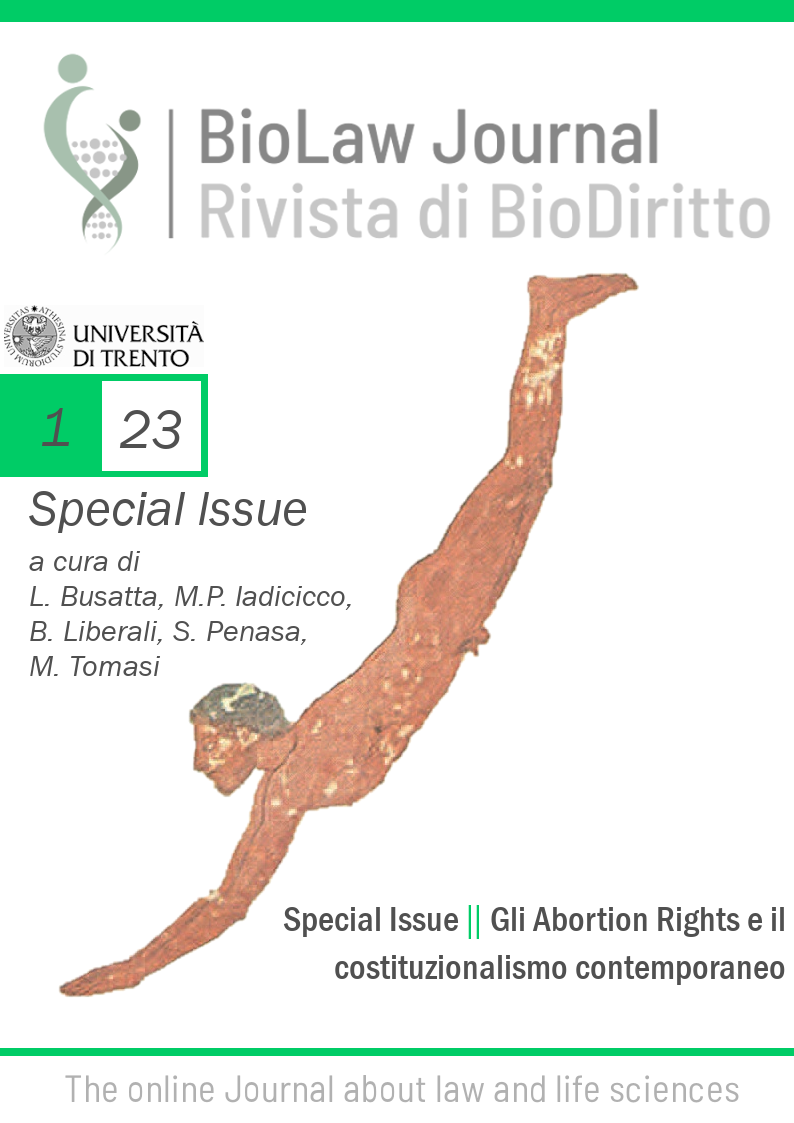Towards an ethics of female difference
DOI:
https://doi.org/10.15168/2284-4503-2563Keywords:
Reproductive autonomy, gender difference, female authority in procreation, biological essentialism, catholic and secular culturesAbstract
The ruling of the US Supreme Court Dobbs vs Jackson, which has taken away women’s constitutional right to reproductive autonomy, shows the permanence of the political and ethical conflict on abortion, more than fifty years after the legalization of abortion. The article illustrates the Italian public debate since the approval of the reform in the Seventies (l.194/78), highlighting the political and ethical position inspired by the concepts of gender difference and female “authority” in procreation, rooted in women’s experience of “giving birth to humans”. In accordance with gender difference, women’s reproductive autonomy is an ethical principle, which recognizes women as free and responsible subjects. If this principle is challenged, women are reduced to their bodies and degraded to “nurturing systems of life”. The ethics of female “authority” in generation restores the full human meaning of “coming to life”, against the “biological essentialism” of the catholic doctrine as well as of parts of secular culture.
Downloads
Published
How to Cite
Issue
Section
License

This work is licensed under a Creative Commons Attribution-NonCommercial-NoDerivatives 4.0 International License.





